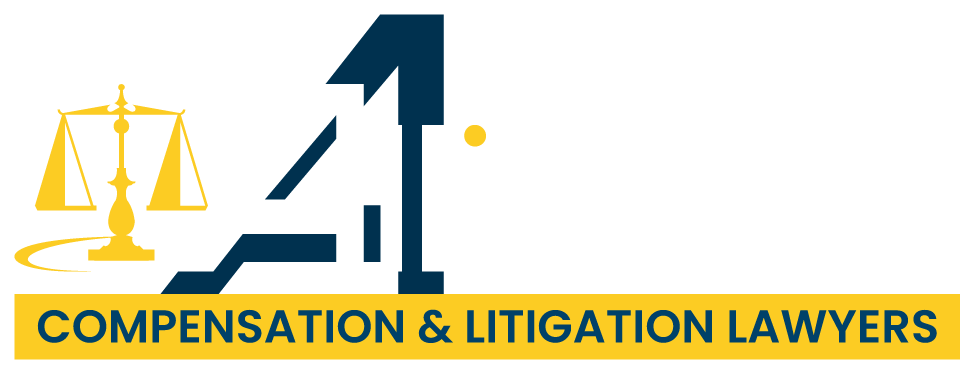It’s not too late. Even if your injury happened long ago, you can still reopen a workers compensation claim in NSW and receive payments. The main issue is evidence, not time. To be eligible for workers compensation, you need to show that your workplace injury relates to your current condition.
Don’t worry if it sounds overwhelming. We understand the system and are here to help you navigate it. The first step is to identify the reason for reopening your workers compensation claim.
What are the reasons for reopening a workers compensation claim?
It’s not unusual to want to reopen a workers compensation claim. People often do this if their medical condition worsens, they need additional treatment, or there are errors in the claim. A claim may also be reopened to dispute the decision to stop or discontinue compensation.
Some of the reasons for reopening a workers compensation claim includes:
- Recurrence of an existing work injury
- Further payment is required via weekly payments or medical expenses
- To fix any data errors related to your claim
- Disputing a provisional liability decision
Let’s dive into these reasons in more detail.
Recurrence of an existing work injury
A work injury recurs if, after the injury, your symptoms reemerge or heighten to the point where you need treatment or can’t function.
For example, Leon returns to work after recovering from a head injury caused by falling equipment. He begins experiencing occasional blackouts and memory loss. Realizing his injuries might be worse than he thought, Leon decides to get more treatment.
If you’re reopening a claim for this type of reason, the tough part is showing that your condition was caused by the original injury, not a new one. The distinction might not seem like a big deal, but the amount of your benefits and your employer’s premium depend on it.
The State Insurance Regulatory Authority (SIRA) in NSW doesn’t provide much guidance on this. According to SIRA, insurers must conduct “a common-sense evaluation of the evidence.” Medical reports and eyewitness statements on your pre- and post-injury condition may be considered.
Further payments are required
Do you need to stay off your feet longer than expected to recover? Reopening your workers compensation claim can give you much-needed financial support. This is true whether your work capacity has been partially or fully affected.
From regular living expenses to medical costs, workers compensation in NSW covers a lot of ground. Here’s what you need to know about reopening a claim to get further weekly payments and reimbursements for medical costs.
You are looking for further weekly payments
Did you know that workers compensation in NSW provides weekly payments for up to 130 weeks (2.5 years)? If you go back to work sooner, the remaining weeks are banked and can be used in the future if the same injury limits your work capacity again.
Compensation doesn’t end there if you’re suffering from a major injury. Workers with long-term injuries can get weekly payments for up to 260 weeks total (5 years). Lifetime payments are made for workplace injuries that have caused more than 20% permanent impairment.
You can get 80% of your maximum weekly earnings or the maximum weekly compensation amount (whichever is less) minus any deductions and current work earnings if:
- You cannot work at all,
- You can work 15+ hours per week and are earning at least $155 weekly,
- You are working less than 15 hours per week, earning less than $155 weekly, and are more than 20% permanently impaired, or
- You have high, unassessed needs, and the insurer believes you are likely more than 20% permanently impaired
To reopen a workers compensation claim, you may need to have your medical practitioner fill out a new certificate of capacity.
Take a look at our detailed guide to learn more about workers compensation payouts in NSW.
You are looking for further medical expense reimbursements
Believe it or not, you can get reimbursed for medical expenses related to a workplace injury even years after the injury occurred. Many types of costs can be covered, including:
- Hospital treatment
- Physiotherapy
- Chiropractor visits
- Counselling and psychological treatments
- Ambulance services
- Travel costs for necessary treatments
- Home assistance
- Home and vehicle modifications
Insurers need evidence linking your treatment to your workplace injury. Be prepared to show notes from your healthcare practitioner(s) plus records of past treatments to back up your claim.
What if your insurer turns down your claim? You still have a chance. The Workers Compensation Commission of NSW has a 4-step process to resolve the issue. It involves talking through the issue with an insurance company representative and an arbitrator.
Do I need to reopen a workers compensation claim to get a lump sum?
Thankfully, you don’t need to reopen a workers compensation claim to get a lump sum payment even if the injury happened years ago. Give your insurer a permanent impairment claim form with evidence and supporting documentation. Learn more on the SIRA website.
To fix any data errors related to the claim
Your claim may not tell the whole story if it was filed with missing or inaccurate information. Don’t settle for a mistaken rejection or less compensation than you deserve. Reopen your workers compensation claim to submit updated medical information or new evidence.
A formal claim lodged against provisional liability stopped via reasonable excuse
Medical bills add up quickly when you’re injured. Fortunately, you don’t have to wait weeks or months after filing a claim to get compensated while your insurer comes to a decision.
In NSW, insurers must come to an initial (“provisional”) decision about your claim within 7 days. If it looks like your workplace is liable, you can get provisional liability compensation. This can help cover costs until your insurer makes a formal liability decision.
But there’s a catch. Insurers can discontinue provisional compensation if any of the following “reasonable excuses” apply:
- There’s not enough medical information
- You’re not likely a “worker” by legal definition
- You can’t be reached
- You refuse to provide information (like medical records)
- Your injury isn’t work-related
- You don’t need weekly payments (possibly because you aren’t incapacitated or haven’t lost any income)
- You notified the insurer more than 2 months after being injured
If you believe your provisional compensation was wrongfully stopped, you can reopen the claim by seeking a formal liability decision that essentially overrides the provisional decision.
According to Subdivision 4 of the Workers Compensation Regulation 2016, a new assessment of the costs related to your injury can be made any time after the original assessment “for the purpose of correcting an inadvertent error in the determination.”
Why has my workers compensation claim been closed?
It’s easy to assume that your claim will remain open as long as you have unpaid compensation. But it may be closed if the insurer formally decides against your claim, even if you’ve already received provisional liability payments. A workers compensation claim in NSW may be denied if:
- You don’t have enough medical evidence
- Other evidence is insufficient or conflicting
- You aren’t legally defined as a “worker”
- You weren’t injured at work or while working
- The expenses in the claim are excessive or unrelated to work
- Your injury happened beforehand
A claim can also be closed if you’ve been fully compensated and aren’t eligible for further payments.
What are the insurer’s responsibilities?
As intimidating as it may be to communicate with the insurer, SIRA has rules in place to make sure you’re treated fairly. Insurers can’t reject or close a claim without good reason. If your claim is closed, insurers must notify you, your employer, and any other stakeholders. You’re also entitled to know the reason for the closure and any relevant implications of the decision.
What if my injury is an aggravation of a previous injury?
Things get a little complicated if you get a workplace injury while recovering from a previous workplace injury. For claim purposes, the injury that contributed the most to your current condition is considered the primary cause. Once this is decided, insurers have 2 working days to notify you and your employer.
If you had a different employer when you were previously injured, the workplace in which the primary injury occurred determines which employer is held liable for compensation.
For example, Riley files a workers compensation claim for a knee injury while working for Company A. Later on, she files another claim for injuring the same knee while working for Company B. After investigating the case, the insurance company decides that Riley’s injury was primarily caused by her injury at Company B. Therefore, Company A is off the hook for Riley’s second claim, and Company B is responsible for compensation.
Workers who are denied compensation after the primary cause is determined (say, because the compensation period for that injury expired) are not out of luck. In such cases, SIRA nudges insurers to consider basing claims on the non-primary injury, provided it materially contributed to the worker’s condition.
What’s the difference between a recurrence and an aggravation?
Say you were injured months ago. If your condition starts to flare up randomly now without any external cause, it’s considered a recurrence. To get compensated for a recurring injury, you must reopen your former claim.
If your condition flares up because of an identifiable event and not randomly, it’s considered an aggravation. To get compensated for an aggravated injury, you must file a new workers compensation claim.
Struggling with a workers compensation claim? Let us help.
If you’re suffering from a workplace injury, you shouldn’t have to worry about how you’re going to get compensated. Let us take care of the details. At Alliance Compensation & Litigation Lawyers, we’ve helped countless clients navigate the workers compensation system to get what they’re owed. Let our skilled Workers Compensation Lawyers assist you with your claim. Your Compensation is our Reputation.
To book a free, no-obligation consultation, call us at (02) 8764 1776. Or, send us an email at refer@alliancecomplawyers.com.au.
To read more about workers compensation in NSW visit our detailed workers compensation guide.


















